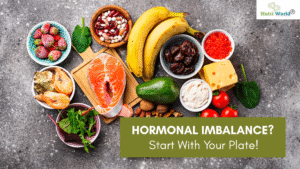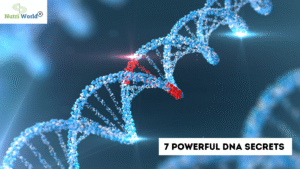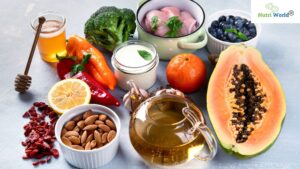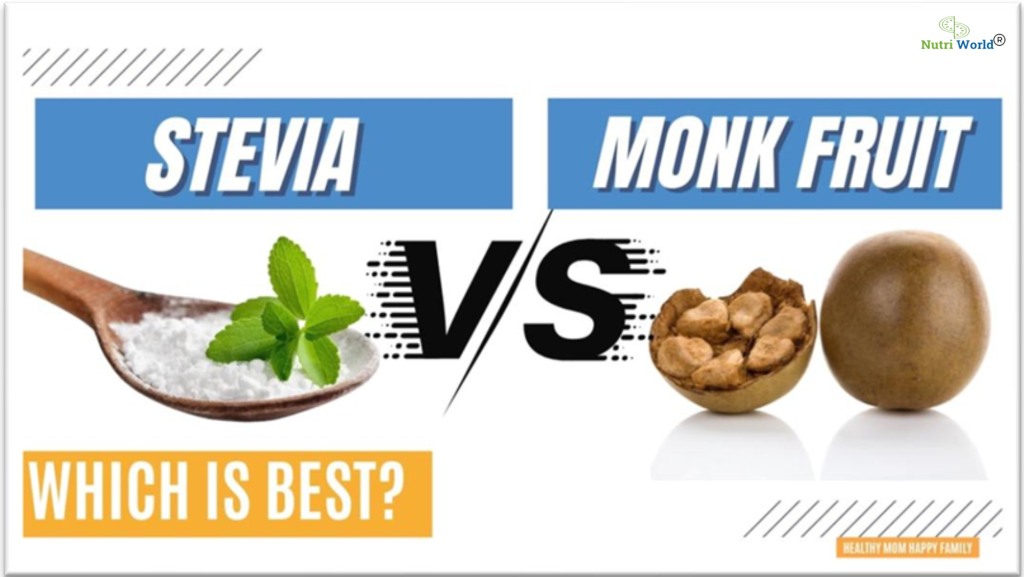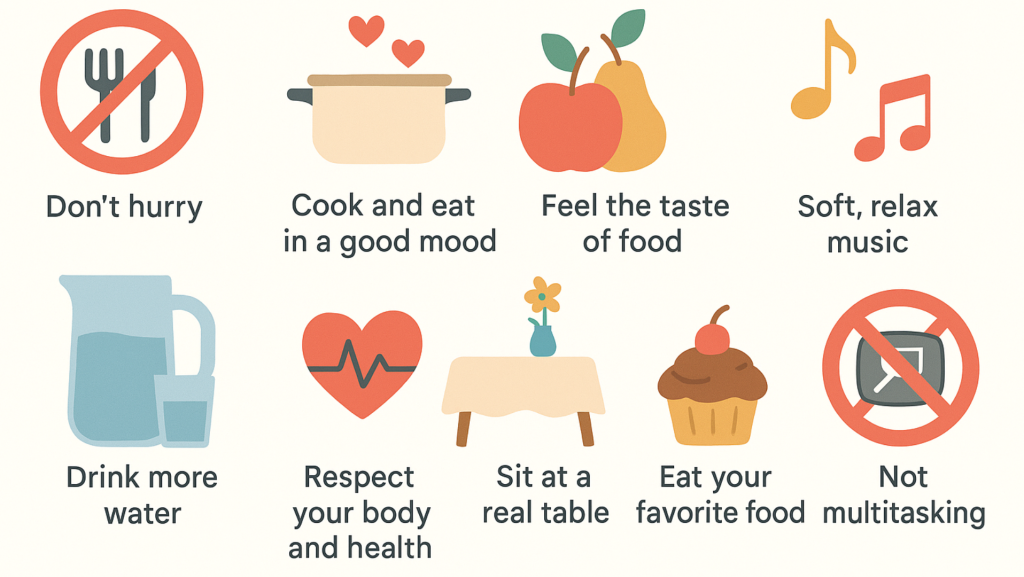By Nutriworld | Dt. Dipanwita Saha
What is Protein? Why it is important to take in adequate amount and its requirement
Protein is very important for the body because it makes up muscles, tissues, enzymes, and hormones.
It is essential for:
- Muscle Growth and Repair: Following physical activity or exercise, protein aids in the growth and repair of muscle tissue.
- Cell Structure and Function: Proteins are required for the structure and strength of cells and tissues.
- Immune Function: Proteins can help in the production of antibodies, which protect the body against illnesses and infections.
- Hormone Regulation: A lot of hormones are made of proteins or peptides, and they are very important for keeping the body in balance and controlling its functioning.
- Vegetarians must consume adequate protein to maintain muscle mass and promote general health. Without enough protein, you may endure muscle loss, exhaustion, and an weakened immune system. Eating a range of protein sources will help you meet your daily requirements while also supporting a healthy diet¹.
Protein requirement:
Before we get into vegetarian protein sources, it’s crucial to understand how much protein is required. Adults should consume 0.8 grams of protein per kilogramme of body weight every day. Individual requirements may vary depending on age, gender, and level of physical activity².

Tips to include protein in your diet as a vegetarian
Diversify protein sources:
To get a variety of amino acids, eat a variety of protein-rich foods. The amino acid profiles of many legumes known as dals in Indian cuisine, include lentils, chickpeas, black beans, and kidney beans, among others. With this option, you can be assured that you’re getting the essential amino acids your body requires for optimal health.
Nuts and seeds:
Nuts and seeds are nutritional sources of protein, healthy fats, and essential minerals that are ideal for snacking. Some of the best alternatives include almonds, walnuts, chia seeds, flaxseeds, and pumpkin seeds. These snacks not only enhance your protein intake, but also provide fibre, heart-healthy fats, and sustained energy. They also allow you to become fuller for longer.
Add Whole Grains:
Quinoa, brown rice, whole wheat, and oats are examples of whole grains that offer substantial protein content along with complex carbohydrates. You may boost your protein intake and get sustained energy through their fibre content by adding them into your diet.
Take Dairy:
For lacto-vegetarians, dairy products are a great source of protein. Milk, cottage cheese, and Greek yoghurt are all great providers of calcium and other essential nutrients. They contain a lot of protein as well. They can be consumed by themselves or combined with other snacks and meals.
Make a balanced meal plan:
Protein sources should be combined with a variety of vegetables, whole grains, and healthy fats to create well-rounded meals. This approach ensures that your body receives the proper quantity of protein together with a range of vitamins, minerals, and other vital nutrients for overall well-being.
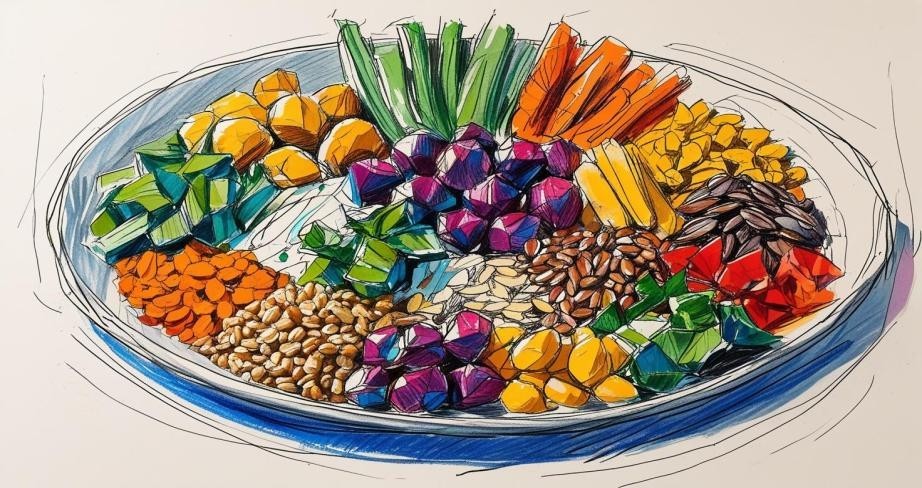
Supplements:
Although a well-planned vegetarian diet can provide adequate protein, some people might wish to consider taking protein supplements, especially those with certain dietary restrictions or high protein needs. Using plant-based protein powders, such as those made from rice, soy, or pea protein, is a simple way to improve protein intake. Supplements should, however, ideally complement entire food sources rather than replace them³.
Conclusion
Consuming sufficient protein on a vegetarian diet is completely possible with careful planning and variation. Protein is necessary for muscular development, immunological function, hormone balance, and overall health. Individuals can achieve their daily protein requirements by eating a variety of plant-based protein sources, including legumes, nuts, seeds, whole grains, and dairy (for lacto-vegetarians). Making balanced meals and using supplements as appropriate will help you achieve your nutritional goals. Finally, a well-balanced vegetarian diet can supply all of the essential amino acids and nutrients required for a healthy, active lifestyle.
FAQs
How to get protein if you’re a vegetarian?
Vegetarians can receive enough protein by consuming a range of plant-based protein sources such as legumes, grains, and soy products, as well as mixing foods to form complete proteins.
Which vegetarian foods are high in protein?
Good vegetarian protein sources include quinoa, lentils, chickpeas, tofu, and tempeh. Dairy products, nuts, and seeds can offer a healthy protein boost.
Is paneer rich in protein?
Yes, paneer is a good source of protein (18–20 g per 100 g) and also provides calcium, phosphorus, and healthy fats.
Why do vegetarian lack protein?
Vegetarians don’t always miss out on protein. Protein can be found in plant foods such as whole grains, beans, lentils, tofu, nuts, and seeds. Eating a range of plant proteins, such as rice and beans, covers all required amino acids; the only problem is that some are “incomplete.”
Reference
Valiao, J. (2025, March 7). How to get enough protein as a vegetarian? Fit Meal Ideas. https://fitmealideas.com/how-to-get-enough-protein-as-a-vegetarian/
Team, E. R., & Team, E. R. (2024, May 16). What do vegetarians eat for protein? ETprotein | Top-notch Proteins & Nutrition | China No.1 Manufacturer. https://www.etprotein.com/what- do-vegetarians-eat-for-protein/
Lakhan, Y. (2023, August 25). 6 essential tips to boost protein intake for Vegetarians. Slurrp. https://www.slurrp.com/article/6-essential-tips-to-boost-protein-intake-for-vegetarians- 1692989686946
BY, Ragini Nilkanth Sahare, Bsc Food science and Nutrition, Dietetics
Msc Clinical nutrition and Dietetics

